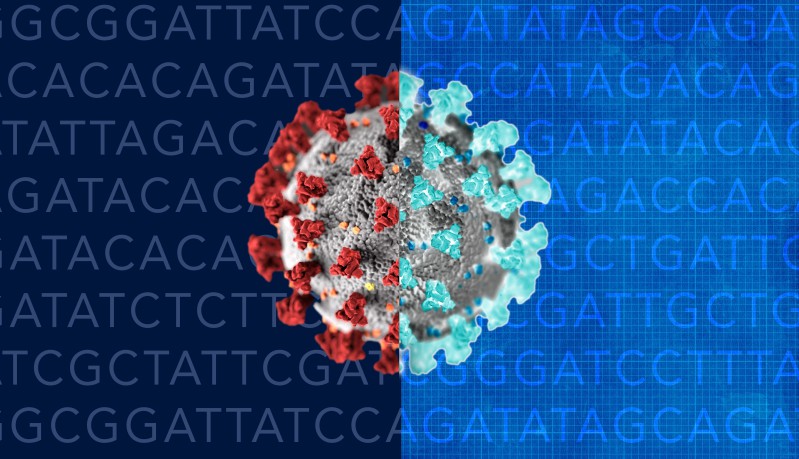
FDA issues policy guidance to help medical product developers address COVID-19 viral variants.
As worrying new variants of COVID-19 emerge, the possible reduced effectiveness of current medical products is creating an urgent unmet need.
Responding to this concern, the U.S. Food and Drug Administration (FDA) last month issued a suite of guidance documents for medical product developers. The new guidance aims to facilitate efficient modification of vaccines, diagnostics, and therapeutic products to address viral variants.
According to an agency press release, FDA already developed plans for the emergence of variants of SARS-CoV-2, the virus that causes COVID-19. Variants have mutations that differentiate them from predominant viral strains circulating in the general population, and different variants can cause differences in transmissibility or severity. Researchers identified the first SARS-CoV-2 variants within months of the pandemic beginning. More recently, variants that emerged in the United Kingdom and South Africa have sparked worries over their higher transmission rates.
Current COVID-19 “prototype vaccines”—those currently authorized by FDA or being developed—may provide reduced protection against these variants, according to preliminary findings from clinical trials of COVID-19 vaccines in multiple countries.
As a result, FDA stresses the urgent need to develop and evaluate vaccines against SARS-CoV-2 variants. To facilitate this goal, FDA updated its guidance on emergency use authorizations (EUA) for COVID-19 vaccines. The updates provide recommendations to vaccine developers, including those seeking to amend an existing EUA to address new variants.
As authorized by statute, FDA may issue an EUA when a product meets several specified criteria. For example, FDA must determine that “the totality of scientific evidence” allows a reasonable belief “that the product may be effective to prevent, diagnose, or treat” COVID-19. In addition, the product’s known and potential benefits must exceed its known and potential risks.
For manufacturers of existing prototype vaccines, such as Pfizer, Moderna, and Johnson & Johnson, FDA expects to authorize through EUA amendments the modification of vaccines to target a SARS-CoV-2 variant if the vaccines are made using similar processes and controls as for existing prototype vaccines.
To request an EUA amendment, manufacturers must provide “chemistry, manufacturing, and controls” information, as well as clinical and nonclinical data. Modified vaccines may be evaluated based on the efficacy of a manufacturer’s authorized prototype vaccine. Sponsors must also show supporting data from clinical immunogenicity studies, which compare immune responses that the prototype and modified vaccines induce. Sponsors should also conduct booster studies, administering the modified vaccine to individuals already vaccinated with the prototype.
The EUA guidance document also notes the possibility that, in the future, FDA may authorize modified vaccines without requiring clinical studies.
Viral mutation can affect the efficacy of more than just vaccines—mutation can also affect diagnostic tests. In response, FDA issued guidance for developers of COVID-19 tests. This guidance identifies tests already known to be affected by emerging viral mutations.
FDA recommends that developers design tests to minimize the impact of viral mutations on test performance. In reviewing EUA requests for COVID-19 tests, FDA will consider how the test performs across variants and whether the manufacturer plans for post-authorization monitoring.
FDA urges test developers to plan for routine monitoring of new genetic mutations and viral variants, as well as assessment of the impact of these mutations and variants on test performance. Developers should convey limitations related to viral variants in the test’s labeling. For example, labels should describe when and where the “clinical specimens used in the test’s evaluation were collected” and state that “clinical performance has not been established in all circulating variants.”
FDA also issued and updated guidance documents that address the impact of emerging virus variants on therapeutics, including monoclonal antibody products, drugs, and biological products.
In its new guidance document on developing monoclonal antibody products, for example, FDA notes that some monoclonal antibodies have been shown to be less effective against some SARS-CoV-2 variants. Monoclonal antibodies mimic how the immune system defends against viruses. The new guidance provides recommendations on possible ways to support an EUA for monoclonal antibody products that could be effective for new variants.
FDA also revised its guidance on drugs and biological products, encouraging developers to continue to monitor emerging SARS-CoV-2 variants that are growing in prevalence or may impact product effectiveness.
Commenting on the new guidance, Janet Woodcock, the acting FDA Commissioner, emphasized FDA’s commitment to finding effective ways to pivot as the virus adapts, assuring the public that the agency will use “every tool in our toolbox” to fight the pandemic.



